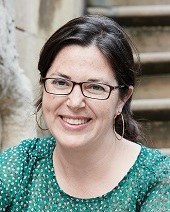Dr Dacia Viejo Rose

Cultural violence and the destruction of cultural heritage: Assessing the harm done
Abstract
The deliberate destruction of cultural heritage during wartime has grabbed headlines worldwide in recent years. Spurred by the highly mediatized targeting of Dubrovnik and the Mostar Bridge, the Bamiyan Buddhas and the Baghdad Museum, Aleppo and Palmyra, to name but a few, the rhetoric used to denounce such acts has become increasingly fiery. UNESCO’s Director General, traditionally temperate in tone, has made accusations of ‘barbarism’, of attempts to ‘delete’ civilizations, of ‘cultural cleansing’, and of heritage as ‘extremism’s new target’ (Bokova 2014 and 2015). This linguistic hyperbole belies a complex underbelly, for the motivations, immediate consequences, and medium-term
impacts of these dramatic acts are far from straightforward. Understanding what underlies the destruction is further complicated by the insistence on applying moral values to heritage, good, and its destruction, bad, that has resulted in an inadequate appreciation of the violent political uses and abuses that heritage is subject to in the build up, evolution, dénouement, and aftermath of armed conflict. This paper will propose an analytic lens for examining cultural violence in the context of war. It will do so by exploring a number of cases of destruction and reconstruction of cultural heritage. The paper will end with a consideration of how the resulting understanding might inform the formulation of reparations, in particular symbolic reparations, as recently recommended by the International Criminal Court in the case against Al Mahdi.
Biography
Dr Dacia Viejo-Rose (PhD, University of Cambridge 2010) is a Lecturer in Heritage at the Department of Archaeology, University of Cambridge and Deputy Director of the Cambridge Heritage Research Centre. She co-coordinates the postgraduate degree programme in heritage studies and is a Director of Studies at Selwyn College, Cambridge. Previously she was British Academy Post-doctoral Fellow (2012–2014) based at the McDonald Institute for Archaeological Research and a Post-doctoral Fellow on Cultural Heritage and the reconstruction of Identities after Conflict (EU FP7 project, 2008-2012). Dr Viejo Rose is the author of Reconstructing Spain: Cultural Heritage and Memory after Civil War (SAP, 2011) and co-editor of War and Cultural Heritage (CUP, 2015). She first became interested in how cultural heritage and conflict come together when working at UNESCO in Paris (2000-2002).
Read more about Dr Dacia Viejo-Rose



